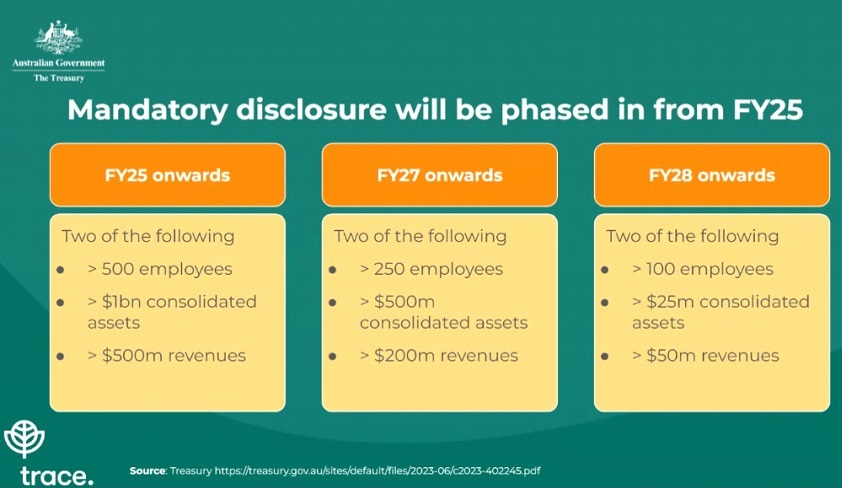Find out how Carbon Accounting Impacts Your Company
The landscape of climate reporting is rapidly evolving. Over 27 countries, including Spain, New Zealand and soon Australia (January 1, 2025), have mandatory climate-related disclosure laws.
The International Sustainability Standards Board (ISSB) is working on integrating and unifying various international frameworks to create a common baseline for sustainability-related reporting.
This initiative aims to standardize climate disclosures globally, making it easier to understand and compare sustainability data.
Unfortunately, greenwashing remains a significant concern for regulatory bodies and civil society.
Who will be affected by these changes?

Why Should SMEs Start Reporting?
- Even if your company is small, not measuring your carbon footprint could leave you out of the market.
- In the near future, all companies will likely need a decarbonization plan, either because it will be mandatory or because they are part of a supply chain that requires reporting on scopes 1, 2, and 3 emissions.
- Transparency in greenhouse gas emissions will become the norm, and starting early will better prepare your company for future regulations.
Beyond Obligation: Seizing the Opportunity
Viewing carbon accounting not just as an obligation but as an opportunity can benefit your
company. By measuring and managing your carbon footprint with the same rigor as your finances, you can make your business more efficient and resilient. We can guide you in measuring and reporting your carbon footprint and preparing a comprehensive plan to manage your greenhouse gas emissions.
Let’s partner to make your carbon accounting as rigorous as it is simple. Shall we talk?
Regeneras and partnership with Trace.
